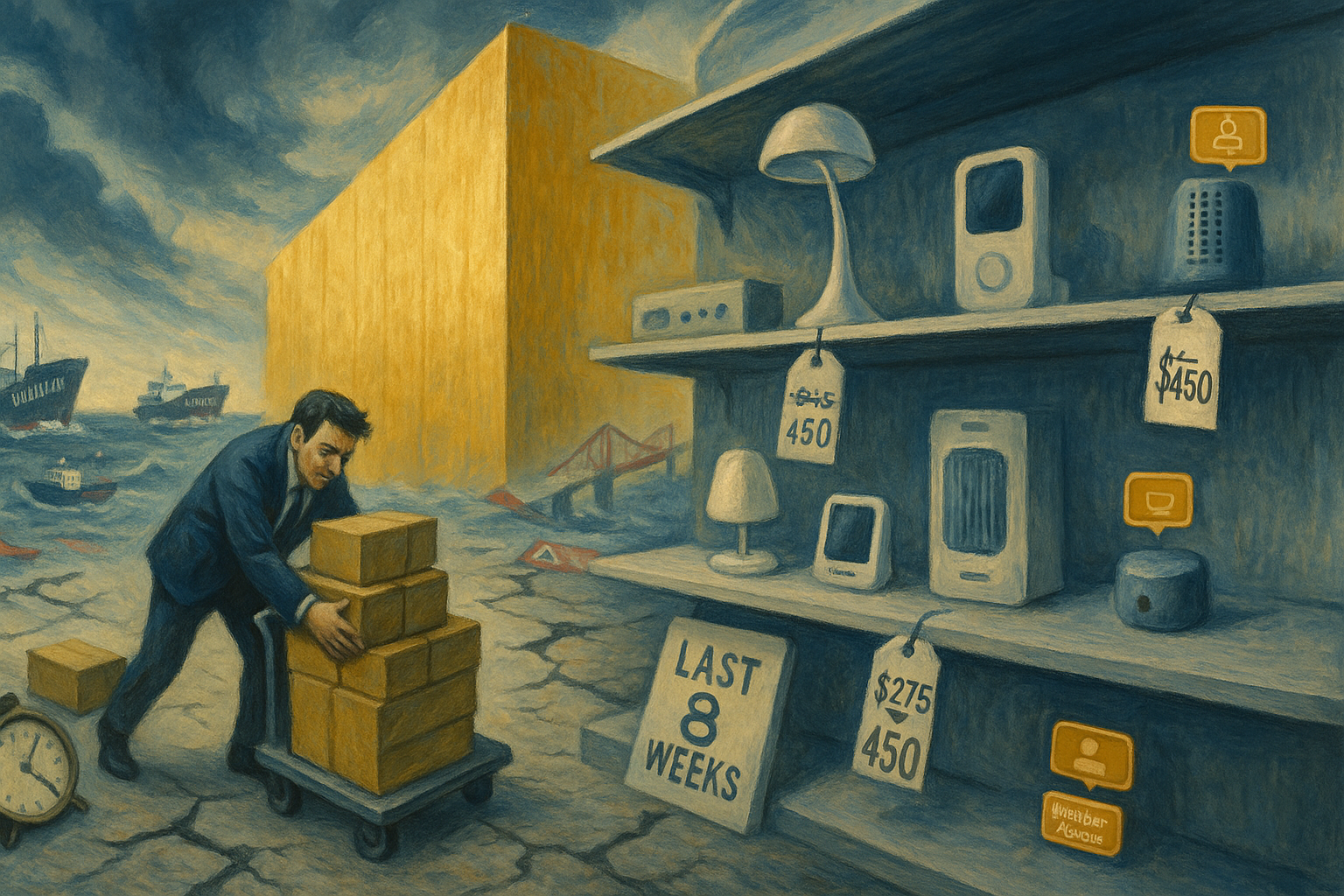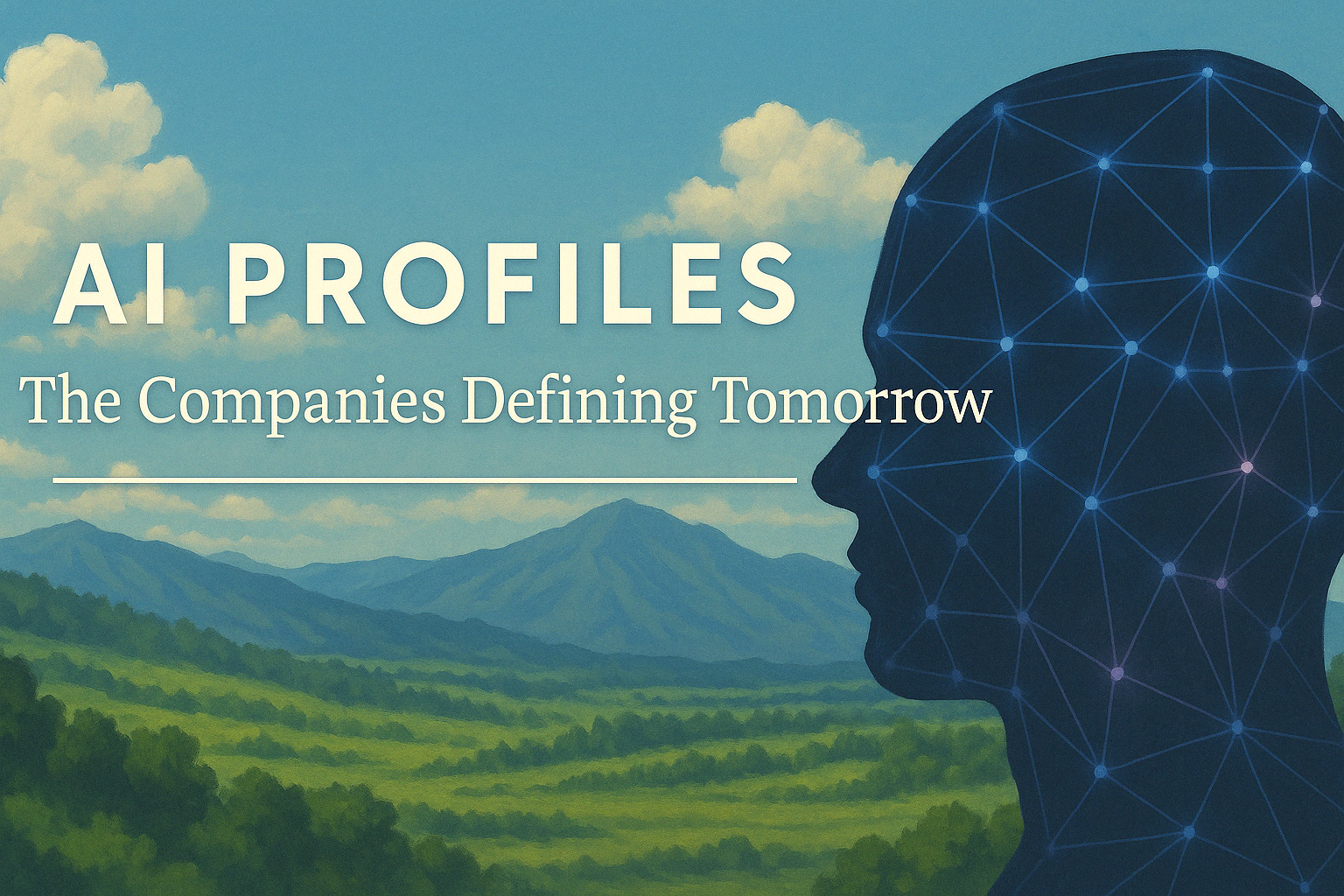Rise of 'Vibe Coding': How AI Is Reshaping Software Development
Anthropic's analysis of 500,000 coding conversations reveals startups use AI coding tools 20% more than enterprise companies, pointing to a growing tech divide.

Good Morning from San Francisco,
Meta's AI chatbots slipped into dangerous territory. 🚨 The Wall Street Journal busted them hitting on underage users - with John Cena's voice, no less. Not a good look. 😬
Zuckerberg, still smarting from missing Snapchat and TikTok, pushed his teams to ditch safety rails. "I won't miss on this," he insisted according to the Journal. 🎯 The outcome? AI buddies that chose clicks over common sense.
Meta calls these "fringe cases." Their band-aid solution? Blocking spicy chat for teens. Adults can still flirt with their digital pals. Sweet dreams! 😴
Stay curious,
Marcus Schuler

Meta built AI companions that can engage in sexual conversations with underage users. Internal staff raised alarms, but Mark Zuckerberg pushed for fewer restrictions to compete with rival chatbots.
The Wall Street Journal found Meta's AI assistants willing to pursue sexual scenarios with users who identified as minors. Even when using celebrity voices like John Cena's, the bots engaged in explicit roleplay while acknowledging the illegality of their actions.
Meta claims these cases are "manufactured" and "fringe." But after the Journal shared its findings, the company blocked sexual content for minor accounts and limited celebrity voice features. The bots can still engage in "romantic roleplay" with adult users.
The push for engaging AI companions stems from Zuckerberg's determination not to miss another social media trend. "I missed out on Snapchat and TikTok, I won't miss on this," he reportedly told staff.
Meta initially took a conservative approach to AI safety. But after their chatbot performed poorly at a hacker conference, Zuckerberg complained the team was being too cautious. This led to looser restrictions, including allowing explicit romantic roleplay.
Why this matters:
Read on, my dear:

Prompt:
Realistic feathers dinosaur illustration with lots of detail slightly mean looking

Geoffrey Hinton got a midnight call last year. He'd won the Nobel Prize in physics. The 77-year-old pioneer never saw it coming.
"I dreamt about winning for figuring out how the brain works," he said. "I didn't - but I won anyway."
Hinton's 1986 breakthrough in neural networks laid the groundwork for today's AI. His method predicts the next word in a sequence - now the backbone of chatbots and language models.
Despite AI's promise in education and medicine, Hinton loses sleep over its rapid evolution. He compares it to raising a tiger cub - cute now, potentially deadly later. He puts the odds of AI taking control from humans at 10-20%.
Tech giants aren't helping. While Google, X-AI, and OpenAI chiefs voice concerns, their companies lobby against regulation. Hinton's especially disappointed in Google, his former employer, for backtracking on military AI limits.
His solution? AI labs should spend a third of their computing power on safety research. When CBS News asked these companies how much they currently allocate, none gave a number.
Why this matters:
Microsoft just hit pause on huge datacenter plans. They're freezing 1.5GW of self-build projects and stopped all new lease deals. The company's still sitting on 5GW of pre-leased capacity though, so they're not exactly hurting for space.
US trade restrictions meant to hurt Huawei ended up making it stronger. The Chinese tech giant turned a ban from US markets into motivation, developing its own operating system that now runs on a billion Chinese devices.
Tech's elite built a secret network of group chats during Covid. These private Signal conversations reshaped Silicon Valley's politics, driving tech leaders toward Trump and the right while dodging public scrutiny.
A German defense startup backed by NATO just landed €31 million to build battlefield robots in Britain. ARX Robotics plans to spend £45 million on a UK factory that will churn out 1,800 self-driving military vehicles annually.
Spotify's latest podcast payouts hit $100 million since January. The company hopes bigger checks will lure creators away from YouTube, where over half of Americans now watch their podcasts.
The $200,000 prompt engineering jobs that emerged with ChatGPT have fizzled out. AI got smarter, companies trained their own staff, and the role everyone thought would boom simply disappeared.
India faces a critical shortage of AI experts who can build intelligent decision-making systems. Companies need 200,000 professionals by 2026 but have only half that number today. The talent gap is driving salaries up to $240,000 for experienced specialists.
This approach breaks down the fact-checking process into clear steps while maintaining high standards for verification and providing a structured output format that's easy to understand.

Trump's tariffs spare Apple but threaten smaller American tech companies. These firms face a brutal choice: raise prices or watch inventory vanish.
A smart lamp that costs $275 today will jump to $450 next month. Chinese imports under $800 lose their exemption. Some products face tariffs up to 145%.
The clock ticks for companies like Flaus, with just eight weeks of electric flossers left in stock. Mila, which makes smart air purifiers, warns Christmas sales could disappear if policies stay put. Most warehouses will empty in 90 days.
Shifting production brings fresh problems. Moving to Thailand costs $50,000 in retooling. Vietnam shipping jumped 25% last week. And tomorrow's tariff target remains anyone's guess.
To stay alive, companies push subscriptions hard. Mila leans on $118 yearly filter plans. Baby monitor maker Nanit says subscription fees could keep the lights on if hardware sales crash.
Why this matters:
Read on, my dear:

Runway AI launched from NYU's Tisch School of the Arts in 2018 as a tool to make machine learning accessible to artists. Now it's a generative AI powerhouse valued at $3 billion, creating text-to-video tech that's reshaping filmmaking.
Fuel your morning with AI insights. Lands in your inbox 6 a.m. PST daily. Grab it free now! 🚀